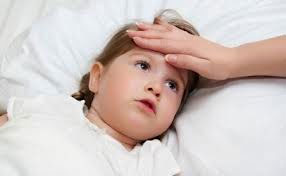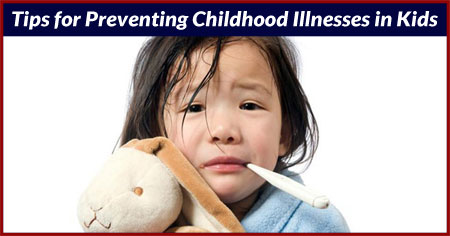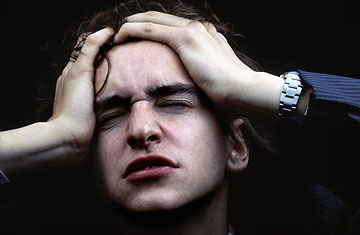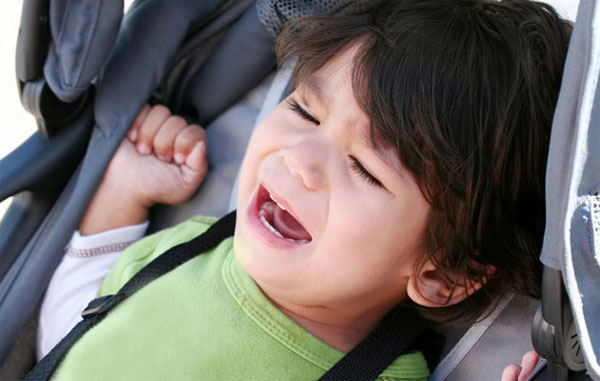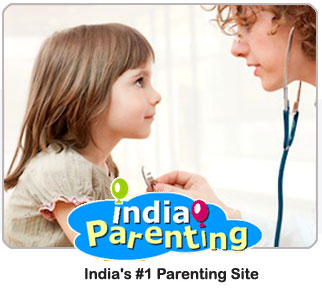 Immune system of newborn babies and young children is weak. They are prone to viral and bacterial infections. There are some ways and precautions, if taken on time can help to keep your child safe. Read on to learn about some tips to prevent bacterial infections in children.
Immune system of newborn babies and young children is weak. They are prone to viral and bacterial infections. There are some ways and precautions, if taken on time can help to keep your child safe. Read on to learn about some tips to prevent bacterial infections in children.It seems a daunting task to keep kids free of bacterial infections. The most common bacterial infections among kids are ear infection, throat infection and skin infection. Many bacterial infections are preventable by routine immunization at the right time in childhood. By making few simple lifestyle changes, you can prevent your child from bacterial infections to a great extent.
Preventing Bacterial Infection in Children
Here are some tips for preventing bacterial
infections in children.
1. Cleanliness and Hygiene
You will be surprised to know that microbes can live from few minutes to several months in one place. It depends on the bacteria and favourable environment they get. So, it is very important that your child, touches, wears and uses things that are clean and disinfected. However, the best way to prevent infections from free bacteria is to wash hands frequently. It is also important to dry hands using a clean and dry towel or paper towel.
2. Keep Child’s Personal Belongings Separately
Toothbrush, handkerchief, towel and other strictly personal things of your child should be kept separately. Teach your child not to share these things with anyone. Even when kids share toys or come back after playing with other kids, train them to
wash their hands and feet thoroughly.
3. Cover Mouth When Sneezing or Coughing
Sneezing and coughing spread bacteria in the air. Even if there are no symptoms of infection in your child, he or she should be taught to cover her mouth with handkerchief when sneezing or coughing.
4. Teach Your Child to Turn Face When Some Sneezes or Coughs
You cannot teach etiquettes to all. So, teach your child to turn her head away if someone sneezes or
coughs without covering his or her mouth. This will save him or her from getting infected especially if that person is ill. Also, teach her not to make faces so that the other person does not feel bad.
5. Stay Updated with Local News
As a parent you should stay updated with the local news so that if there is any chance of infection of common bacteria, you can take extra care of your child. Make sure you do not panic because this will help your child stay calm and cautious.
6. Use Safe Cooking Practices
Poor
food preparation and dining habits can cause food borne diseases. Promptly refrigerating food and reheating it properly before serving can help prevent it from getting attacked from harmful bacteria. Keep cooking platforms clean and wash vegetables and fruits thoroughly before using. Do not serve stale food to children or food that has been refrigerated for long period of time. The digestive system of children is weak, so they must always be served freshly prepared food.
7. Hygienic Precautions After Playing with Pets
Many bacterial infections are caused in humans through animals. When your kids play with
pets, make sure they wash their hands properly before touching anything else.
8. Care of Pets
If you have pets at home, you should take care of cleanliness and hygiene with them also. Make sure your pets are also vaccinated on specific time.
When you have small kids at home, it becomes very important you take extra care especially in case of cleanliness and hygiene. Teach your child how to maintain
personal hygiene from early childhood.
Even after taking precautions, kids may get infected by bacteria. Watch out for the symptoms and consult your paediatrician if you are not able to control temperature or other indications by natural methods. Do not waste much time.If the infection is caught in time, the doctor will start antibiotics and some supportive care also to make sure your child gets well at the earliest.
Which are the common bacterial infections in children? What are the causes of bacterial infections in children? How to prevent bacterial infections in children? Discuss here.











 Immune system of newborn babies and young children is weak. They are prone to viral and bacterial infections. There are some ways and precautions, if taken on time can help to keep your child safe. Read on to learn about some tips to prevent bacterial infections in children.It seems a daunting task to keep kids free of bacterial infections. The most common bacterial infections among kids are ear infection, throat infection and skin infection. Many bacterial infections are preventable by routine immunization at the right time in childhood. By making few simple lifestyle changes, you can prevent your child from bacterial infections to a great extent.
Immune system of newborn babies and young children is weak. They are prone to viral and bacterial infections. There are some ways and precautions, if taken on time can help to keep your child safe. Read on to learn about some tips to prevent bacterial infections in children.It seems a daunting task to keep kids free of bacterial infections. The most common bacterial infections among kids are ear infection, throat infection and skin infection. Many bacterial infections are preventable by routine immunization at the right time in childhood. By making few simple lifestyle changes, you can prevent your child from bacterial infections to a great extent.




